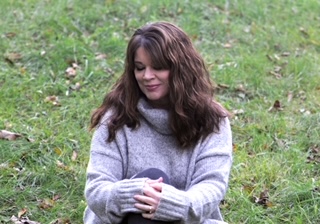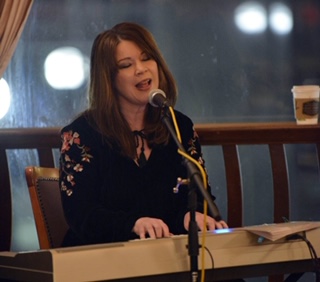Originality in Music: Innovators and Imitators
- Written by Angela Predhomme

Someone once said to me, “Artists are either innovators or imitators.” Nowhere is this more true than in music.
First off, I want to make it clear that both of these paths have value. People are easily impressed with innovation. If something hasn’t been done before, people think it’s great. Is originality in itself commendable, though? It’s debatable. Regardless, there is definitely a commercial demand for copycat music.
Imitators -- A thriving business
The sync licensing world is heavily invested in music that “sounds like” a popular band or artist. They search out or commission these tracks because they may not be able to get permission from the publisher of a famous song to use it, or, more likely, they don’t have the budget to license something like the latest Ariana Grande hit. So, they look to us hardworking indie artists for songs that sound very similar to a radio hit or a hot style. After all, they know that most of us would be thrilled to get our songs licensed for almost any fee. We unsigned artists have no leverage -- who are we kidding? Some of my best sync placements have been “gratis” (no up-front licensing fee).
Imitation isn’t limited to music licensing. I’ve noticed that when there’s a big break-out band or sound, commercial radio starts also airing sound-a-likes soon after. For example, a while back, the pop group Fun. burst onto the scene with a relatively unique sound. They had distinctive “oh oh oh-ohs” in the male backing vocals. Do you know how many other songs came out with that “oh oh” sound after that? A lot.
And the copycat cycle doesn’t stop with the music. It also imitates lyrical topics. Just look at country music. It’s a whole genre with many, many songs about drinking and ideas that fall under the umbrella of “bro’ country.”
Additionally, a few years back, there were several hit songs speaking to a lover, telling them they’re already perfect. Like, “no need to change. You’re wonderful just as you are.” I’m sure you can think of at least 3 mega-hit songs with this theme, and they all came out within a couple years of each other.
Music trends that snowball and feed off each other probably happen because the music biz is not known to invest in what’s original and unique. Artistry is a risk, and business people don’t like to take risks. They want the return on their investment to be as close to a sure thing as possible. So, in their eyes, imitation, or going with the trends, is a way to stack the deck in their favor and increase the odds of making a profit. I can’t really blame them. They’re investing tons of money in promotion. If it was my own 6 figures, the unprecedented “artiste” might look less attractive than hopping on a cash cow bandwagon. So, I don’t hate them. I get it.
Innovators -- Artistry in music
On the other side of the coin, there are the die-hard artists. In my understanding, there are two different motivations behind originality in music.
One reason is because you’re creating art from your soul -- from your true self. You’re not chasing a dollar (but money is welcome, of course!) You’re simply expressing your individual artistry because you want to, or you need to. You’re expressing the unparalleled creativity within each of us that’s as unique as our fingerprint, or like a snowflake, where no two are exactly the same.
This is a noble path, in my humble opinion. This is when you create music because you love it, and what comes out of you is from a very honest place. To go deep within yourself and create from that vulnerable place definitely takes courage. True artistry is quite beautiful when it comes from that place of ethereal purity.
A second catalyst for originality in music is for more external reasons. It’s being different just for the sake of being different, sometimes in hopes of pleasing the critics or projecting a certain image. Music critics love the unexpected. It seems to me that IF you can be really off-the-wall or strange, critics are quite easily impressed.
Pablo Picasso, the famous artist, pointed out this phenomenon precisely when he said, “The rich and the idlers seek the new, the extraordinary, the extravagant and the scandalous. I have contented these people with all the many bizarre things that come into my head. The less they understand, the more they admire it. By amusing myself with all these games, all this nonsense, all these picture puzzles, I became famous. I am only a public entertainer who has understood his time.”
As predictable as praise is for creating something that’s never been done, I believe that most artists that are heavily imitated are the real deal. For example, I don’t think Fun was trying to start a trend of “oh ohs” in songs. They were just doing their thing. Same with the creative powerhouse Billie Eilish. She’s an artist expressing herself. And to their credit, the country songwriters who write about partying are probably actually living the Solo cup life. Have you been to Nashville? They definitely know how to party.
At the end of the day, though, your music is your own, and the choice is yours. You can do quite well with music licensing agencies if you’re good at replicating popular sounds. Or, maybe you could even luck out with a hit song if you write a compelling, catchy song on a trending topic. On the other hand, you could just write what you want to write, and create what you love. That’s what I do, for the most part, and I’ve been lucky enough to have people truly appreciate my work. Either way, I suggest you make music the way you want to make it, whatever that is! It’s all good!
Bio: Singer-songwriter Angela Predhomme’s music has been heard by millions through television, film, radio and streaming. Her soulful songs have been featured in the popular Hallmark movie “Christmas on Honeysuckle Lane,” Lifetime’s hit show “Dance Moms,” commercials for ING Bank and Fiat, and more.
Links:
Website: http://www.angelapredhomme.com
Facebook: https://www.facebook.com/angelapredhomme
Instagram: https://www.instagram.com/apredhomme/
Twitter: http://www.Twitter.com/angelapredhomme
YouTube: http://www.youtube.com/angelapredhomme
Spotify: https://spoti.fi/2OIcj1T
Apple Music: https://apple.co/2PMpZwT
Pandora: https://pdora.co/2OHGJkO






